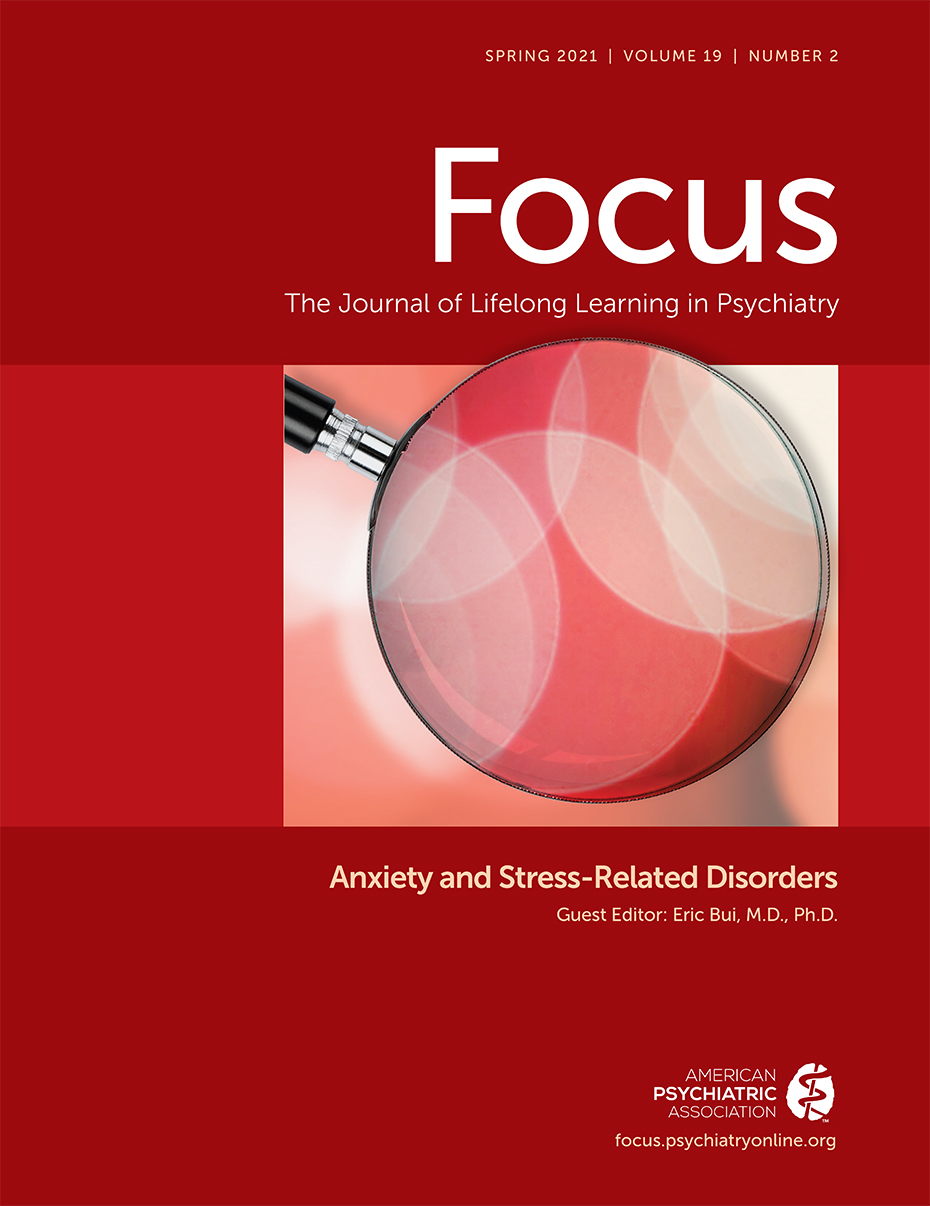Mind-Body Interventions for Anxiety Disorders: A Review of the Evidence Base for Mental Health Practitioners
Abstract
Mind-body interventions have gained increasing popularity for use with anxiety symptoms; however, it is unclear what role they play in the treatment of anxiety disorders, such as generalized anxiety disorder, panic disorder, and social anxiety disorder. Although psychopharmacology and psychotherapy treatment interventions are available, mind-body interventions may be low-stigma options that can serve as effective alternatives. The goal of this review is to provide clinicians with an overview of high-quality studies for the most well researched mind-body interventions. This review involved a search of the primary literature, including meta-analyses, systematic reviews, and randomized controlled trials (RCTs), that evaluated mind-body interventions for the treatment of anxiety disorders. When published evidence was limited, lower-quality studies were reviewed. Overall, data were limited on the efficacy of most mind-body modalities for anxiety disorders. The highest-quality data existed for yoga, mindfulness-based interventions, and applied relaxation for anxiety disorders. However, findings were sometimes inconsistent across studies, and some studies were limited by small sample sizes, poorly defined randomization and blinding procedures, and inadequate control groups. Although not enough data exist to recommend mind-body interventions as primary treatment options, they may be considered as part of a larger treatment plan given their relatively low levels of risk. Future steps for researchers include conducting additional RCTs with adequate control groups, comparing mind-body treatments with existing treatments, and examining long-term effects of mind-body interventions.



